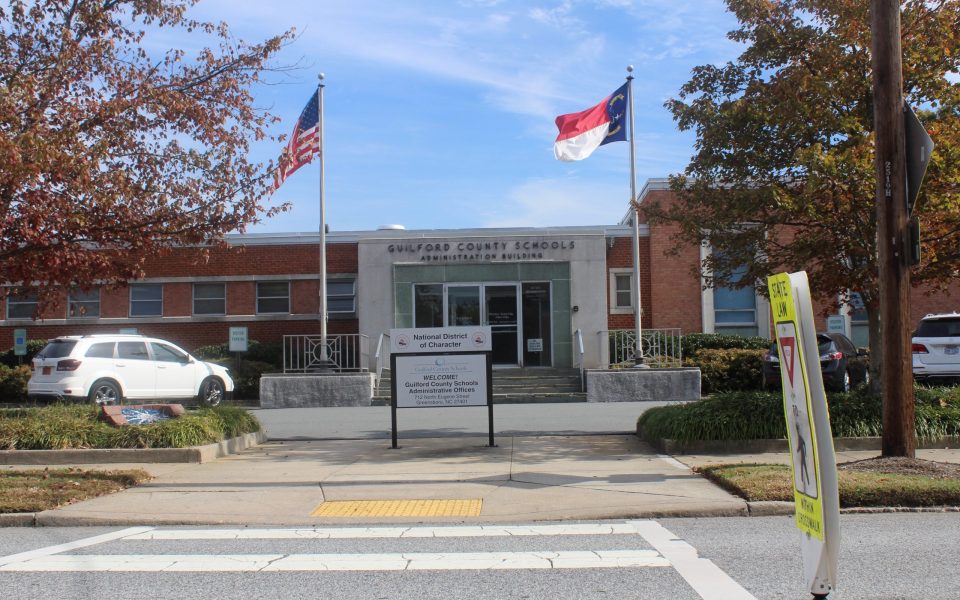For the time being, Guilford County Schools is withdrawing a proposal to charge parents for public records requests, but the process for handling requests is still confusing and likely to create misunderstanding and frustration.
Parents and other requesters will be spared the expense of copies for public records requests to Guilford County Schools, at least for now.
A proposed revision to the district’s public records policy will be on the agenda for the school board’s next meeting on Dec. 12 without a previously discussed charge of 10 cents per page after the first 50 pages, according to Tina Firesheets, a program administrator for media relations.
Parent advocates have monitored meetings of the board’s policy committee and addressed the full board during the public comment section for the past several months. Some parents have expressed frustration about the difficulty of obtaining school-level information from principals, while staff has chafed at having to fulfill cumbersome and complex information requests. Lissa Harris, founder of Parents Supporting Parents, and the Rev. Laverne Carter with the Greensboro Pulpit Forum have argued that the contemplated charge for copies was punitive.
Both Harris and Jill Wilson, an attorney with Brooks Pierce law firm who provides legal counsel to the board, said they believed the issue had been temporarily put to the side, but Firesheets said Chief of Staff Nora Carr informed her that it would be placed on the next agenda.
School board member Byron Gladden said the policy committee agreed to forego any charges for copies at its last meeting in early November. He added that the committee agreed to revisit the issue in a year and might impose a charge at a later time, depending on the volume of requests. While the matter appears to be resolved for the time being, the process for handling requests remains unclear.
“I would say definitely there has historically been a culture where parents have felt exasperated to the point where they have to come show out at the board meeting to get some results,” Gladden said. “They’re not getting it at the school level. They’re not getting the information.”
Gladden suggested that training by the school attorney might address some of the frustration by empowering principals to respond to requests at the school level. Currently, all public records requests go to Carr, the district’s designated public records officer, and documents often need to be reviewed by the attorney to avoid releasing confidential student information.
“The school board attorney conducted a training on this topic with the principals,” Gladden said. “There’s some misinterpretation. Another training is needed to make sure all our principals are on the same page about what data they can release without going through some kind of approval or referring it to central office just to have it sent back to the school with delays.”
The administrative regulation posted on the district website with the latest draft of the proposed policy outlines a process for fulfilling records requests at odds with Gladden’s description of a potential fix.
Consistent with current policy, the regulation dictates that all public records requests should be submitted to Carr, as the public records officer, adding that “a request submitted to any other school official or school employee will be referred to the public records officer in accordance with board policy and this regulation.”
Firesheets said the administrative regulation posted on the district website represents the proposed policy that will be considered by the board on Dec. 12.
The question of what information a principal can provide to parents and other requesters appears to be wrapped up in how staff defines public records requests.
“If I want to know what the school rating is or if I want to know the racial demographics of my school, that shouldn’t be a public information request,” Gladden said. “The principal should put that together and provide it to the parent.”
Join the First Amendment Society, a membership that goes directly to funding TCB‘s newsroom.
We believe that reporting can save the world.
The TCB First Amendment Society recognizes the vital role of a free, unfettered press with a bundling of local experiences designed to build community, and unique engagements with our newsroom that will help you understand, and shape, local journalism’s critical role in uplifting the people in our cities.
All revenue goes directly into the newsroom as reporters’ salaries and freelance commissions.


Leave a Reply